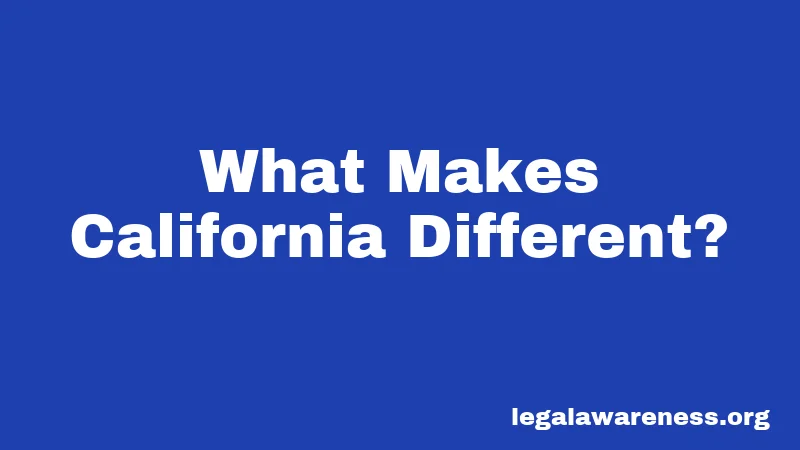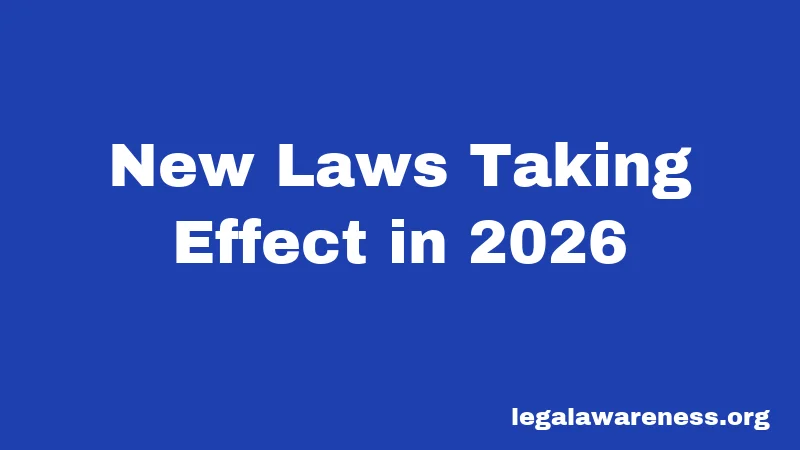California Immigration Laws in 2026: The State’s Evolving Protections
Most people have no idea how different California’s immigration laws are compared to the rest of the country. Seriously. California has some of the strongest protections for immigrants anywhere in the US, and new laws are taking effect right now in 2026. Let’s break down exactly what you need to know.
Whether you’re an immigrant living in California, have family here, or just want to understand how things work, this guide covers the basics. We’ll look at what protections exist, what changed recently, and what your rights actually are.
What Makes California Different?

Okay, here’s the thing. California isn’t just a state with immigration laws. It’s a sanctuary state. That means California actively limits how local police work with federal immigration authorities. Think of it like a shield—not a perfect one, but a real protection that other states don’t have.
California has built these protections over more than a decade. The state passed three major sanctuary laws starting in 2013. Each one added another layer of protection. Together, they make California stand out nationally in how it handles immigration.
This doesn’t mean immigrants are completely protected from federal enforcement. Immigration is controlled by the federal government. But California’s laws do limit what state and local police can do to help federal agents. That’s huge.
The Three Core Sanctuary Laws
California’s sanctuary system rests on three main laws. Let me break each one down so they make sense.
The TRUST Act (2013)
This one came first. The California Transparency and Responsibility Using State Tools Act—TRUST Act for short—was signed into law in 2013. It limits when local police can hold someone for Immigration and Customs Enforcement, or ICE.
Here’s what matters. Before this law, police could hold anyone in jail just because ICE asked them to. It didn’t matter if the person had committed a serious crime or not. That created problems. People were separated from families over minor issues.
The TRUST Act changed that. Now, local law enforcement can only hold someone for ICE if that person has been convicted of certain serious crimes. Basically, police need a real reason—not just an immigration question—to keep someone locked up for federal authorities.
Stay with me here. This means if you get arrested for something minor in California, local police generally cannot hold you extra time just so ICE can pick you up. That’s powerful protection.
The TRUTH Act (2016)
Next came California’s Transparent Review of Unjust Transfers and Holds Act. The TRUTH Act took effect on January 1, 2017. It went even further than the TRUST Act.
This law was created because people were being transferred to ICE without knowing it was happening. Seriously. Families had no idea where their loved ones had gone. Lawyers couldn’t help. It was chaos.
The TRUTH Act fixed this. Now, if you’re in police custody and ICE wants you, the police must tell you. You get information about the request. You can try to get a lawyer. You have time to respond. California became the first state in the nation to require this kind of transparency.
Let’s say you’re in jail. You have the right to know if ICE has requested you. You have the right to refuse an interview with immigration agents. You can try to contact a lawyer. These protections are real, and they’re in writing.
The California Values Act (2017)
This is the big one. Senate Bill 54, known as the California Values Act or the Sanctuary State law, took effect January 1, 2018. This law prevents California from using state and local resources for immigration enforcement.
What does that mean practically? Local police can’t use their time, money, or equipment to investigate, detain, or arrest people specifically for immigration violations. Police can’t share databases with ICE just because ICE asks. State workers can’t cooperate with immigration enforcement in most situations.
The law protects important spaces too. Schools, hospitals, and courthouses are supposed to stay open to everyone regardless of immigration status. Officials at these places can’t ask about immigration status or share that information with ICE without a real legal reason.
Think about that. You can go to school. You can go to the hospital. You can go to court. Immigration status shouldn’t be a barrier, and California is trying to make sure it isn’t.
This law survived multiple legal challenges. The Trump administration even sued California, but courts sided with California. The law stands.
New Laws Taking Effect in 2026

Hold on. Things are getting even more specific in 2026. California passed several new laws designed to protect immigrants further. These started taking effect on January 1, 2026.
Court Protections for Immigrants
Senate Bill 281 requires courts to give immigrants a serious warning before they plead guilty. Here’s the practical side. If you’re not a US citizen and you plead guilty to any crime, you need to understand something. That guilty plea could have immigration consequences. You could be deported. You could be denied citizenship later.
Courts now must explain this in clear language. This isn’t buried in small print. This is a direct conversation about what pleading guilty means for your immigration status. It’s a game-changer because many people don’t realize that a criminal conviction can destroy their immigration case.
Legal Help for Unaccompanied Immigrant Youth
Assembly Bill 1261 is huge for young people. This law requires California to provide free legal help to unaccompanied immigrant youth facing immigration proceedings. These are minors under 18 without a parent or legal guardian in the country.
That’s incredibly important. Immigration court is complex. Adults struggle with it. Kids certainly shouldn’t face it alone. Now California is stepping up to provide real legal representation.
The state contracts with nonprofit organizations to handle this. These lawyers can fight for these young people in court. They can work toward keeping them in the country or finding solutions. Having a lawyer makes all the difference.
Emergency Guardianship for Families
Assembly Bill 495, the Family Preparedness Act of 2025, addresses a real fear in immigrant families. What happens to kids if parents are deported? This law creates legal options.
Now parents can officially designate another trusted adult to care for their children if something happens. This isn’t informal. It’s a legal joint guardianship arrangement. If a parent becomes unavailable due to immigration issues, that designated person can step in immediately with legal authority to make decisions.
Child care facilities are also protected. They can’t collect information about anyone’s immigration status. That means your kid can go to preschool without worrying about data about your family being reported.
School Protections
Schools have new obligations in 2026. Assembly Bill 419 requires schools to post information about students’ rights regarding immigration enforcement. Schools must tell students and families about free public education rights regardless of immigration status.
Schools must also report when immigration enforcement shows up on campus. This isn’t secret. Staff members can’t collect information about students’ immigration status. They can’t help ICE access students without a real judicial warrant.
It sounds basic, right? But many students and families didn’t know these protections existed. Now schools have to make it crystal clear.
Senate Bill 98 strengthens school protection further. Immigration officers need a real court order to enter nonpublic areas of schools like classrooms or offices. Schools must notify families and staff when enforcement appears on campus. This gives families warning and time to respond.
Healthcare Facility Protections
Hospitals and clinics have new rules too. Immigration enforcement officers can’t access non-public areas of medical facilities without a valid court order. More importantly, staff can’t share your immigration status or birthplace with immigration authorities without a legal reason.
This matters because people were avoiding hospitals due to fear. If you need emergency care, you shouldn’t worry about being deported. California is trying to protect that.
Penalties and Enforcement Issues
Okay, let’s talk about what happens when these laws are violated or when immigration enforcement does happen anyway.
If state or local officials violate these sanctuary laws, they can face legal challenges. The California Attorney General can investigate. Violations might result in lawsuits or disciplinary action against officials.
For individuals, knowing your rights is the best protection. If police violate the TRUTH Act, a good lawyer can use that in your case. If ICE operates illegally, that evidence might not be admissible in court.
Here’s the real talk though. Federal immigration enforcement is still aggressive in California. In 2025, ICE detained thousands of people in California. The federal government is increasing detention and enforcement efforts. California’s laws slow things down, but they don’t stop federal operations completely.
Fines for unauthorized employment range from $100 to $1,000 per person for first-time violations. Employers can face civil penalties. But this is employment enforcement, not immigration status enforcement—a different thing.
What About ICE Raids?

Let’s address the elephant in the room. ICE raids still happen in California despite sanctuary laws. These have increased significantly since 2024.
Here’s what you need to understand. ICE is federal. These sanctuary laws are state laws. Federal agents can still operate in California. They can still arrest and detain people. What California law does is limit how much state and local police help them.
If ICE shows up at your workplace, you have rights. You don’t have to let agents into non-public areas without a warrant. You can refuse to answer questions. You can say you want a lawyer. Stay calm. Don’t run. Get names and badge numbers if possible.
Employers have obligations too. They must post notices about worker protections. They must notify your emergency contact if you’re arrested at work. These are new requirements in 2026.
If you think you might face ICE enforcement, talk to an immigration lawyer now. Don’t wait. Planning ahead saves lives and families.
Special Circumstances and Who Gets Protected
Not everyone in California gets the same protections. Your specific situation matters.
DACA Recipients
Deferred Action for Childhood Arrivals recipients have temporary protection. DACA is a federal program, not a state one. It protects people brought here as children from deportation. It allows them to work legally. California actively supports DACA, but the program depends on federal decisions.
TPS Holders
Temporary Protected Status holders come from countries experiencing crises. Their status is federal too. California laws protect them from state-level enforcement, but federal removal is still possible.
Asylum Seekers
People waiting for asylum hearings get some California protections. Schools and hospitals stay open to them. Police shouldn’t hold them just for immigration status. But asylum is decided in federal immigration court.
Mixed-Status Families
Many California families have some members with legal status and some without. California’s protections help the entire family because schools, hospitals, and local services don’t discriminate. Kids can go to school even if parents lack status.
Not sure what counts as a violation of your rights? The basic rule is: state and local resources shouldn’t be used primarily for immigration enforcement. If that’s happening, talk to a lawyer.
Recent Changes You Should Know (2025-2026)
The immigration enforcement landscape shifted dramatically in 2025. Here’s what changed.
In mid-2025, federal immigration application fees increased significantly. Asylum applications now cost $100 to file, plus $100 per year the application is pending. Work permits cost $550. Fee waivers were basically eliminated. This makes legal immigration much more expensive and harder to access.
The federal government allocated billions of dollars to expand ICE operations and detention. This means more arrests and detentions in California, especially in 2025 and 2026. Immigration court backlogs will likely get worse.
California responded by passing new laws. The “No Secret Police Act” (SB 627) bans federal and state officers from wearing face coverings that hide their identity during enforcement. Agencies must adopt policies about this by July 1, 2026. This increases accountability.
The Family Preparedness Act and legal counsel requirements are new. These represent California’s effort to protect families and youth in a more aggressive enforcement environment.
Here’s the real situation. Federal enforcement is increasing. California’s protections haven’t changed fundamentally, but they’re more important than ever. These sanctuary laws are the main thing slowing federal operations in the state.
How to Protect Yourself
Personally, I think preparation is the most important thing. Don’t wait until ICE shows up.
Get your documents in order. Know where important paperwork is. Have a lawyer’s contact information saved. Talk with family about what to do if someone gets arrested.
If you’re undocumented, understand your basic rights. You have constitutional rights. You can refuse searches of your home without a warrant. You can refuse to answer immigration questions. You can ask for a lawyer.
If you’re stopped by police, stay calm. Give your name. Don’t sign anything without a lawyer. Don’t consent to searches. Say clearly: “I want to talk to a lawyer.”
If you’re arrested and you’re not a citizen, make sure the court knows before you plead guilty. Ask about immigration consequences. This is your right under law.
Know where to get help. Community organizations in California offer free immigration legal services. The California Attorney General’s office has resources. Universities often have immigration clinics.
Workplace Rights in 2026
Starting February 1, 2026, California employers must give all workers written notices about their rights. This includes protections against unfair immigration-related practices. It includes information about being misclassified as a contractor. It includes paid sick day rights and heat illness prevention.
Employers must also notify your emergency contact if you’re arrested at work. This is new protection that gives your family warning.
Employers can’t allow ICE into non-public areas of worksites without a judicial warrant. They can’t give up employee information to immigration authorities without legal reason. These protections help workers feel safer at work.
Frequently Asked Questions
If I’m undocumented, can I go to school? Yes, absolutely. Public K-12 education is free for all children regardless of immigration status. This is federal law. California enforces it strictly. Schools can’t ask about immigration status or share that information with ICE.
Can local police ask about my immigration status? Police can ask where you were born. They can ask about citizenship. You don’t have to answer. You can say you want a lawyer. In most situations, police can’t use state resources specifically to investigate your immigration status.
If I’m arrested for a minor crime, can police hold me for ICE? Not usually. Under the TRUST Act, police can only hold you for ICE if you’ve been convicted of certain serious crimes. If you’re arrested for something minor, they generally can’t hold you longer just for immigration reasons.
What should I do if ICE shows up at my house? Don’t open the door unless they have a warrant signed by a judge (not just an ICE form). Ask to see the warrant. You have the right to refuse consent to a search. You can refuse to talk. Say you want a lawyer. Get information about where you’re being taken if arrested.
Do I need a lawyer if I’m facing immigration issues? Yes. Immigration law is extremely complex. Even small mistakes can cause deportation. Free legal services exist in California. Organizations like immigration clinics and nonprofits offer help. Talk to a lawyer before making any decisions.
Can my employer report me to ICE? Employers can’t discriminate against workers based on immigration status. They shouldn’t use immigration enforcement as retaliation. If this happens, it might be illegal. Document everything and talk to a lawyer.
What happens if I’m deported? Deportation is serious. You’re removed from the US, usually barred from returning for years or permanently. You lose your job, home, and access to family. This is why getting legal help immediately is so important if you’re facing enforcement.
Final Thoughts
California’s immigration laws are among the strongest in the country. Sanctuary protections, court warnings, legal help for youth, family preparation laws—these all matter. They slow enforcement and protect vulnerable people.
But let’s be honest. Federal immigration enforcement is still aggressive. These state laws can’t stop all federal operations. What they do is create accountability, transparency, and protection when state resources could otherwise fuel deportations.
If you or someone you know faces immigration challenges, get legal help now. Don’t wait. Organizations across California offer free consultations. Immigration attorneys can explain your specific situation. Planning ahead changes outcomes.
Know your rights. Understand your protections. Prepare your family. That’s how you navigate this complicated system. Stay informed, stay safe, and remember: California’s laws exist to protect you.
References
California Courts: SB 281 and New Immigration Laws (2026)
California Attorney General: Immigration Laws Protecting Immigrants’ Civil Rights
California Values Act (SB 54): ICE Out of California
FOX 11 Los Angeles: New California Immigration Laws 2026
USCIS: Legal Rights and Protections for Immigrants in California
California Law Center: California Immigration Laws 2025 Updates
